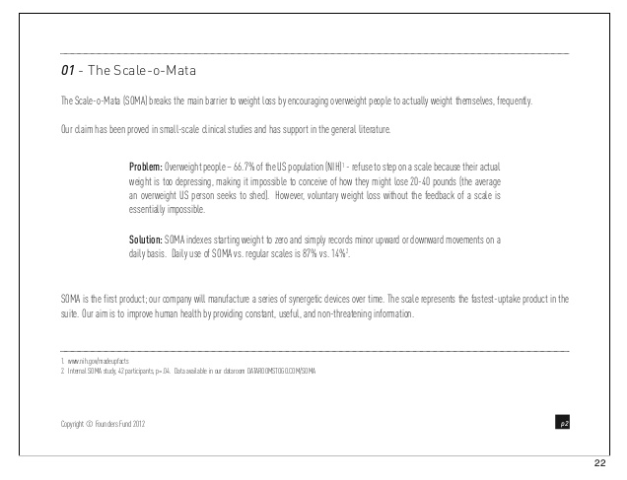

This is very important so it’s worth repeating… we don’t want you to read the script. You are also going to get flustered if you forget your place as opposed to being able to roll with the natural flow of the pitch. For one you are going to sound robotic if you do this. Keep in mind, as with most types of presentations and pitches, it’s important to treat the script you write as a guide, because we don’t want want you to verbatim memorize or recite things. The pitch deck is the guide to your pitch script as you would generally be pitching while simultaneously presenting the pitch deck. Use your completed pitch deck to get started with this process.

Proactively writing your pitch script will reduce the potential for forgetting what to say, leaving critical pieces of information out, or generally just not sounding like you know your business as deeply as you should. You usually only get one shot at making it right when you are in front of investors and we’ve found those that get their script together first, have a better shot of making the pitch they intended to make in the pressure situation. In general your pitch deck serves as a basic outline of the script, but actually writing the details out of what you want to cover and what you want to convey will ensure that you don’t forget important details and that you pitch in a way you can improve upon. Making adjustments when you already have a script is not as challenging as working on the fly with every pitch. So why do we insist on actually writing out a pitch script? Well, a pitch script helps strengthen your pitch by giving you the ability to streamline, focus, and practice effectively. You already have your pitch deck and you know your company.


 0 kommentar(er)
0 kommentar(er)
